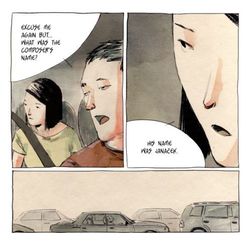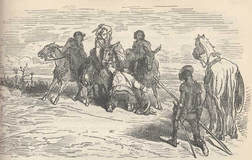|
In creating characters that readers care about, the reader doesn’t need to like them – at least at first. In those crucial first pages, the reader is still getting their bearings. They don’t know or understand the characters yet. But, if they don’t understand them, how can they empathise with them? Why would any reader care about a character with whom they can’t empathise, and why would they keep reading? For a reader to begin a relationship with the person on the page, they need to see that character caring about someone or something other than themselves. In the early paragraphs and pages, when we’re still luring our reader in to become hooked on our story, the plot or context is likely to be one of tension – internal, external or both. Our protagonist will be in the thick of it, or about to be. At this point, a standard trick in feature film scripts to engender audience empathy for the protagonist is to stage a ‘save the cat’ moment, where the hero or heroine steps out of their comfort zone, perhaps at risk to themselves, to perform an impressive act of kindness. In novels, however, this could appear too large a moment, unsubtle, and too obvious a technique for winning a reader’s heart. In the first pages of Hunger Games first novel, author Suzanne Collins has her heroine, Katniss, worried about her younger sister. Anyone who cares about another person is inherently good, and is therefore worth caring about in turn. Readers register this kind of subtext with little or no analysis, but the questions remain – why does the protagonist care? What is the threat and what is the worst-case scenario? In that cunning way we writers bind and enchant our readers to our tale, we’ve already indicated ‘here is someone worth caring about’. If the plot is high stakes, any altruistic thoughts the protagonist has are put into sharp relief – caring becomes an active, risky thing, and therefore admirable. Even a selfish character or anti-hero has to care about something, otherwise there would be no dilemma and the reader would struggle to remain interested. In the first pages of Craig Silvey’s Jasper Jones, protagonist Charlie, acting against his parents’ strictures and his own fear, exits into the night, summoned to help his dangerous friend, Jasper. Without knowing anything else, Charlie wins the reader’s sympathy, and the author wins their intrigue. Either way, we’re hooked. In the opening pages of Haruki Murakami’s IQ84, the female protagonist, Aomame, cares for a piece of music, specifically composer Leos Janacek’s Sinfonietta. Murakami uses stream of consciousness exposition as a curiously adrift Aomame is stuck in traffic, listening to music, letting her mind wander. She thinks, is thoughtful and therefore cares what she thinks about. Even if we don’t care, we’re curious about why she does, and see that she is a decent person as she considers the cab and its owner. In the tension of gridlocked traffic, stuck in the confines of a small taxi on one of the upper level freeways that fly high through Japanese cities, when Aomame decides to strike out and leave the taxi to get to an appointment, it’s an oddly daring risk - a flight to freedom and into possible danger. She doesn’t care about herself, but she’s likeable and intriguing, and we’re worried what’s going to happen to her. In Lev Grossman’s The Magicians, three teenagers are walking to an interview. The two in front are James and Julia, young lovers who walk hand-in-hand. Behind is the Quentin, desiring Julia but loving James, who, in turn, shows his love for the other two by wit aimed at easing the tension. Julia loves them both, showing it with silly banter. None of them are talking about the interview, but it hangs like a deep, held organ note throughout the first pages. Without knowing any more, we know all three care enough to protect the others from worry, despite their own. Irrespective of plot, and even with minimal context, observing an act of caring raises questions that are inherently intriguing. Why is this person behaving selflessly? Are they wise or foolish to do so? Is the person or thing they care about worthy? Would I be as brave and generous in the same situation? When characters risk something for someone else, perhaps against their own wishes, and even putting themselves in danger, readers perceive bravery, and cannot help but admire that character. Even a doomed romantic like a Don Quixote wins our affection by dint of his unrelenting love for the appalling Dulcinea. To care is to love, and love attracts love. Thus we may ensnare our readers to read on, by falling in love with our characters who care.
0 Comments
Leave a Reply. |
Reviews & stuff
Archives
July 2022
Categories
|









 RSS Feed
RSS Feed
